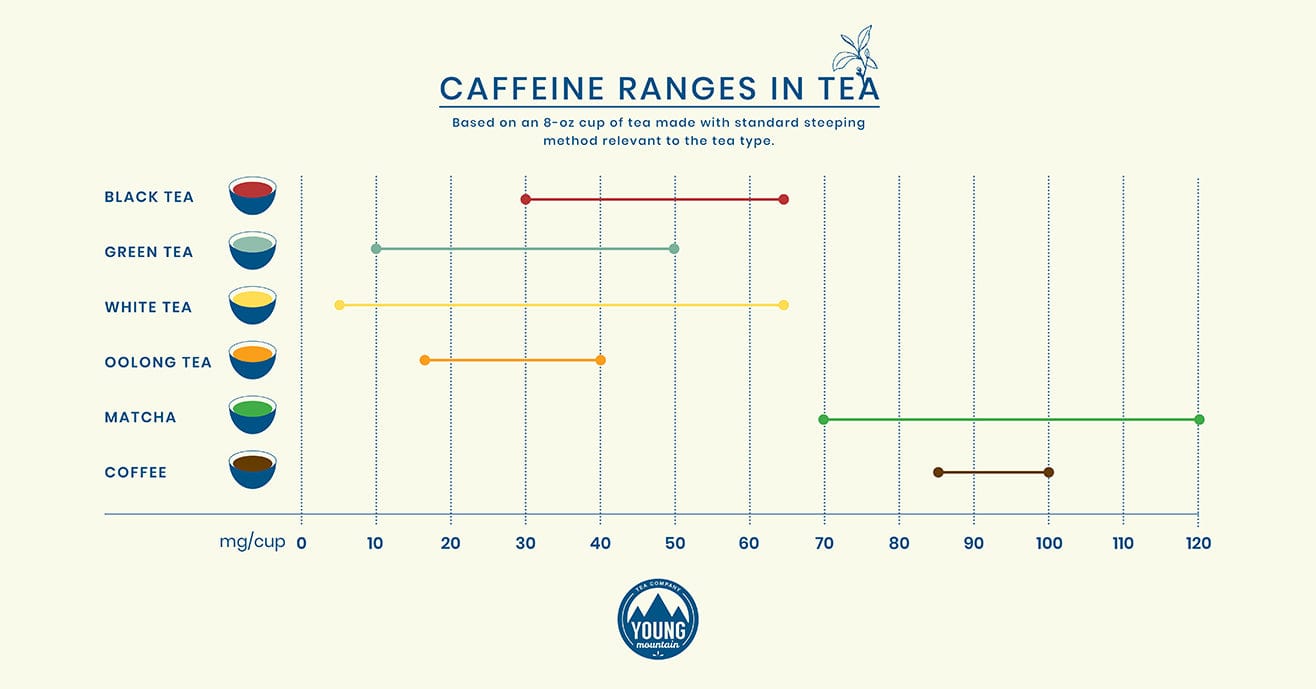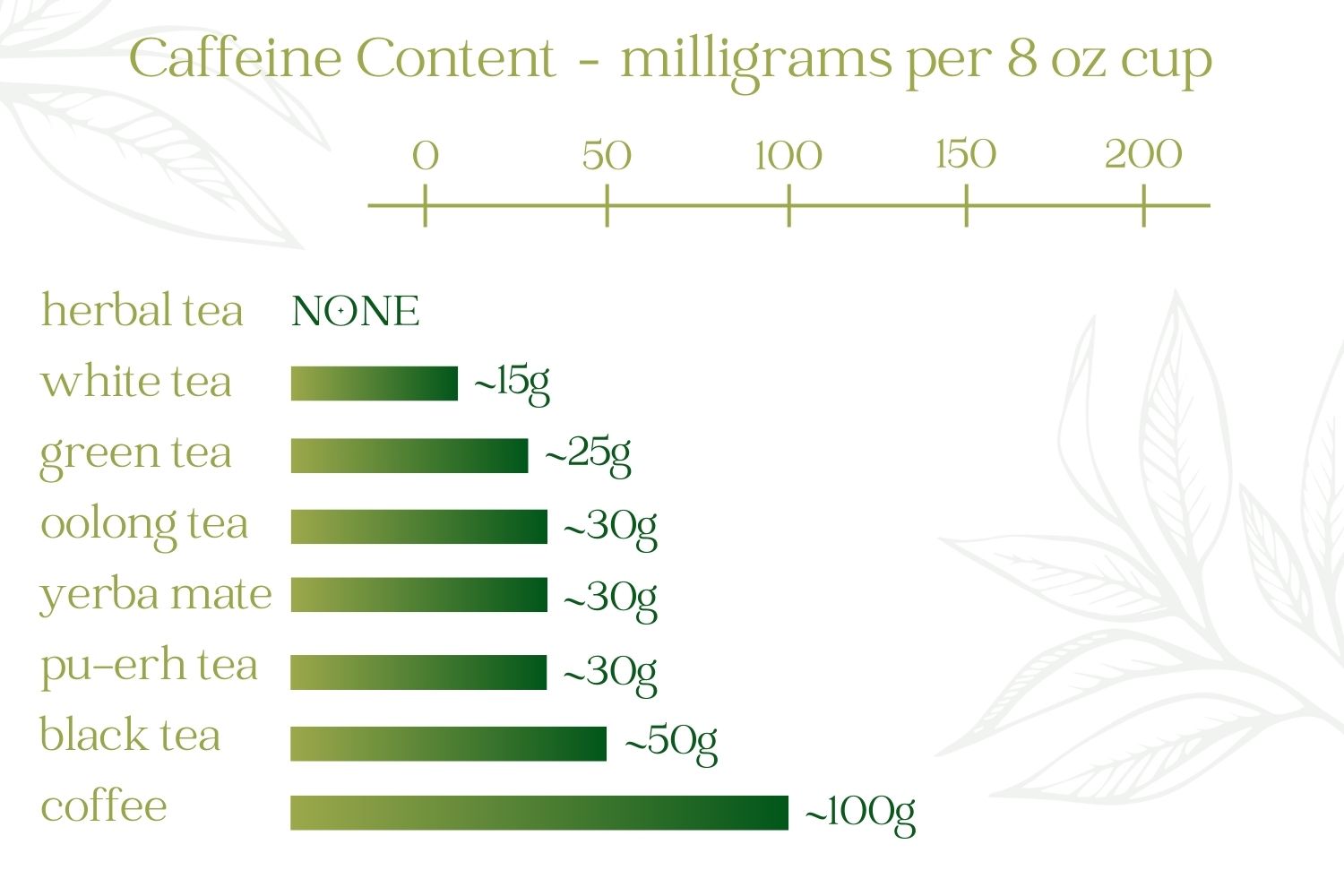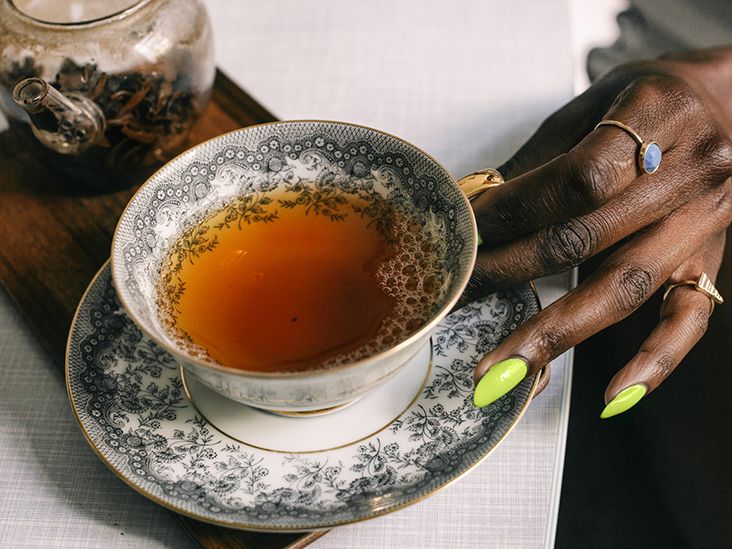Introduction
Looking at Green Tea and Black Tea
Green tea and black tea are two of the most loved teas around the world each bringing its own flavors and health perks. Both come from the Camellia sinensis plant but they’re processed in different ways which affects their taste color and health benefits.
- Green Tea: This type has unoxidized leaves which makes it fresh and grassy in flavor and a light green color. It has plenty of natural antioxidants especially catechins which are tied to benefits like better brain function and weight management.
- Black Tea: Black tea is fully oxidized giving it a strong flavor and dark brown color. This process adds depth and richness while the higher caffeine content makes it a go-to for those needing an energy kick during the day.
Why Compare Them
Comparing green tea and black tea can help tea fans find the right choice for their needs and tastes.
- Caffeine Levels: Knowing the caffeine levels helps if you want a boost of energy or something calming.
- Health Benefits: This comparison looks at the unique health perks of each tea to help you align your choice with your wellness goals.
- Flavor Profiles: Checking out the tastes lets you discover new favorites based on what you enjoy.
By diving into the similarities and differences of these two beloved teas you can really enjoy your tea time even more!

Caffeine Content
Caffeine in Green Tea
Green tea usually offers a milder caffeine kick perfect for those wanting a light energy boost. An average 8-ounce cup of brewed green tea has around 20-45 milligrams of caffeine. It can change based on stuff like the specific tea type brewing time and water temp.
- Gentle Energy: The moderate caffeine gives you a nice lift without the jitters you might get from stronger drinks.
- L-Theanine Boost: Green tea has L-theanine which helps you feel calm and focused. This mix leads to a nice smooth energy feeling.
If you’re sensitive to caffeine or want a calmer drink while staying focused green tea is normally the pick.
Caffeine in Black Tea
Black tea hits harder on caffeine. On average an 8-ounce cup has between 40-70 milligrams which makes it a favorite for those wanting a real energizing drink.
- Stronger Effects: Black tea can boost alertness and fight fatigue which is great for your morning routine.
- Variety Counts: Just like green tea the caffeine level in black tea can shift based on type and brewing method giving tea fans plenty of options.
At the end of the day picking between green and black tea is really about your taste and how you handle caffeine. Both give you some unique perks and delicious flavors for your daily routine.

Health Benefits
Green Tea’s Antioxidants
Green tea is super popular for its antioxidants especially catechins. These help your body fight oxidative stress and cut down inflammation. One well-known catechin is epigallocatechin-3-gallate (EGCG) which brings a bunch of health perks like:
- Heart Health: EGCG helps keep your heart healthy by lowering bad cholesterol and keeping blood vessels in good shape.
- Weight Management: Research shows that green tea can help with metabolism making it a go-to for those wanting to maintain a healthy weight.
- Brain Protection: Its antioxidant benefits also help brain cells from damage which might lower the risk of diseases like Alzheimer’s.
For many fans of green tea these perks encourage them to sip on a warm cup every day!
Polyphenols in Black Tea
Black tea has its own set of benefits thanks to its polyphenols like theaflavins and thearubigins. These compounds give black tea its health perks:
- Heart Protection: Regularly drinking black tea can lower blood pressure and boost overall heart health.
- Antioxidant Benefits: Theaflavins work as strong antioxidants helping to counteract free radicals and protect cells.
- Digestive Health: Black tea might also support digestion and gut health which can help reduce the chances of stomach issues.
Whether you’re into the fresh taste of green tea or the bold flavor of black tea each offers a ton of health advantages to help you feel your best.
Flavors and Varieties
Green Tea Flavors
Green tea has a lovely range of flavors that can whisk you away to peaceful meadows with every sip. The taste can shift quite a bit depending on where it comes from how it’s processed and when it’s harvested. Here are some popular picks:
- Sencha: A Japanese classic this tea is grassy and refreshing with a hint of sweetness. It’s vibrant green and can be enjoyed both hot and cold.
- Matcha: This powdered tea is special since it uses the whole leaf. It has a deep umami flavor and is often used in traditional tea ceremonies.
- Jasmine Green Tea: Mixed with jasmine blossoms this tea brings lovely floral aromas that pair perfectly with the crisp flavor of green tea making a refreshing drink.
Sipping on different varieties of green tea can be quite the tasty journey each offering its own unique vibe!
Types of Black Tea
Black tea also has a fantastic variety all with strong flavors and aromas:
- Earl Grey: A beloved blend with bergamot oil Earl Grey has a lovely citrus scent that captivates tea lovers everywhere.
- English Breakfast: A hearty mix often of Assam Ceylon and Kenyan teas this makes a robust brew great with milk or just by itself.
- Masala Chai: Hailing from India this spiced tea blends cardamom cinnamon and ginger giving it a warm and aromatic flavor that’s hard to resist.
Whether you enjoy the lightness of green tea or the richness of black tea there’s so much to explore in the world of flavors!
How to Brew
Brewing Green Tea
Making a great cup of green tea takes a little care because it’s sensitive to temperature and steeping time. Here’s some handy tips to get the best out of your green tea:
- Water Temp: Heat your water to around 160-180°F (71-82°C). Avoid using boiling water as it can burn the leaves and make the tea taste bitter.
- Steeping Time: Brew for shorter times usually between 1 to 3 minutes. A longer steep can end up tasting astringent.
- Tea-to-Water Ratio: A good rule is about 1 teaspoon of loose leaves per 8 ounces of water. Adjust based on how strong you like it.
As a personal tip I love using a gaiwan which is a traditional Chinese bowl with a lid that helps control steeping times and is great for high-quality green teas that can be brewed multiple times showing different flavors each time.
Brewing Black Tea
Brewing black tea is simpler due to its strong flavor profile. Here’s how to do it:
- Water Temp: Use boiling water about 200-212°F (93-100°C). This helps to extract the rich flavors of black tea.
- Steeping Time: Black tea usually needs a longer steeping time generally between 3 to 5 minutes. You can play around with the time to find what you like best.
- Tea-to-Water Ratio: Like green tea use about 1 teaspoon of loose leaves per 8 ounces of water. Tweak to match your taste.
Keep in mind black tea doesn’t work well for multiple infusions since most flavor comes out in the first brew. Enjoying black tea particularly in the morning or after meals can really brighten your day one sip at a time!

Side Effects and Considerations
Green Tea Side Effects
Even though green tea is known for its loads of health benefits you should keep in mind some possible side effects especially if you drink a lot of it. Here are some points to consider:
- Caffeine Sensitivity: Green tea has about 20-45 mg of caffeine per cup which can still affect those sensitive to caffeine leading to jitters or a quickened heart rate.
- Stomach Issues: Some people might get an upset stomach from drinking green tea especially on an empty stomach. If that happens try having it with some food to make it smoother.
- Iron Absorption: Green tea can make it harder to absorb iron from plant sources because of its tannins. If you have low iron it’s something to keep in mind.
From my own experience I find enjoying green tea after meals is great for enhancing the flavor and easing any potential discomfort.
Considerations for Black Tea
Black tea also has its own set of considerations especially due to its higher caffeine levels:
- Caffeine Overload: A cup of black tea has around 40-70 mg of caffeine making it a stronger option than green tea. Drinking too much can lead to a fast heart rate anxiety and sleep problems.
- Fluid Balance: Black tea is slightly diuretic meaning it can lead to dehydration if you drink a lot. So don’t forget to keep hydrating with water.
- Additives: If you enjoy your black tea with milk or sugar be aware of any extra calories from those. Finding a balance that suits you is key.
Both green and black tea can be part of a healthy diet when you pay attention to your own preferences and needs. Overall moderation is important to enjoy these tasty beverages!
Caffeine Showdown: Green Tea vs. Black Tea
Caffeine Levels Compared
When looking at caffeine green tea and black tea have some clear differences that could influence your drink choice. On average a cup of brewed black tea has 40-70 mg of caffeine making it a go-to for a real energy boost. In comparison green tea usually has about 20-45 mg of caffeine per cup which gives a softer alertness.
- Black Tea: If you like a strong flavor and a big caffeine hit black tea could be your best morning kickstart or afternoon pick-up.
- Green Tea: If you’re after a gentler drink green tea might suit you well. It brings caffeine alongside L-theanine which helps keep you relaxed while being alert.
Personally I enjoy both at different times finding green tea to be more soothing in the afternoon while black tea is what I reach for in the morning.
Which Tea? It Depends!
Choosing between the two really comes down to your taste and what you’re after in a drink:
- Need an Energy Boost?: Black tea is your go-to. Its higher caffeine will give you a solid lift.
- Want Relaxation but Still Focused?: Green tea’s your friend. It’s a gentle choice keeping you calm and clear-headed.
- Caffeine Sensitive?: Green tea is likely the better choice since it has less caffeine.
In the end whether you love the kick of black tea or the soothing nature of green tea both bring unique flavors and benefits that can spice up your daily life!

Leave a Reply